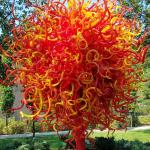INTRODUCTION 2 John is written into a crisis situation. As Jesus predicted, antichrists have “gone into the world” (v. 7), deceiving those who are not on guard. John writes to warn about the deceivers, and to tell the church how to respond to them. THE TEXT “The Elder, to the elect lady and her children, whom I love in truth, and not only I, but also all those who have known the truth, because of the truth which abides in... Read more




















